Nia Therapeutics develops neural interfaces to restore memory function after brain injury or neurodegenerative disease. Nia’s foundational brain stimulation technology was created at Penn by a team led by Dr. Michael Kahana, the Edmund and Louise Kahn Term Professor of Psychology, with funding from the Defense Advanced Research Projects Agency (DARPA). Their research has shown that when a certain type of precise neurostimulation is delivered to a specific part of the brain it can significantly improve memory performance. Nia was co-founded by Penn and Dr. Kahana, and continues to work closely with PCI. The company has exclusively licensed foundational technology from Penn that was recently awarded an issued patent.

Dr. Michael Kahana

Saar Gill, M.D., Ph.D., Assistant Professor in the Perelman School of Medicine, and Dr. Miriam Kim, M.D., Ph.D., a postdoctoral researcher in the Gill Lab, have co-invented a new chimeric antigen receptor (CAR) T cell therapy for the treatment of acute myeloid leukemia (AML). Targeted CAR T cell therapies for AML have been difficult to develop in the past because shared expression of targetable antigens on the tumor and normal tissue typically result in unacceptable toxicity.
The new therapy developed in the Gill Lab involves genetically removing the AML target (CD33) from normal hematopoietic stem and progenitor cells to create a hematopoietic system resistant to CD33-targeted therapy, thus enabling specific targeting of AML with CD33-directed CAR T cells without the previously observed toxicity. This novel approach could lead to an effective therapy for otherwise incurable AML once fully clinically developed.
A patent application has been filed and a clinical trial is pending.

Dr. Saar Gill, M.D., Ph.D., Assistant Professor in the Perelman School of Medicine

Dr. Michael Milone, Associate Professor of Pathology and Laboratory Medicine at the Perelman School of Medicine
Chimeric antigen receptor (CAR) T-cell therapy has been incredibly successful in the treatment of certain B-cell leukemias and lymphomas. Dr. Michael Milone, Associate Professor of Pathology and Laboratory Medicine at the Perelman School of Medicine, is seeking to further improve on this successful platform.
Unlike natural immunoreceptors, which are multi-protein complexes, traditional CARs are generally composed of single polypeptides containing both the antigen binding and signaling functions in a single molecule. Hypothesizing that a receptor design that more closely resembles a natural immunoreceptor might provide a more robust CAR T-cell, Dr. Milone engineered T-cells to express an extracellular antigen binding domain linked to a short cytoplasmic domain derived from the killer immunoglobulin-like receptor itself. The resultant construct, termed a “KIR-CAR”, can bind to multiple downstream signaling domains and maintains a more sustained signaling than other types of CAR-modified immune cells. Dr. Milone has founded a start-up company in partnership with Penn to further develop this patent-pending technology for multiple tumor types and is currently planning additional clinical proof-of-concept experiments.
Passage Bio, a genetic medicines company co-founded by James A. Wilson, M.D, Ph.D. the Rose H. Weiss Professor in Penn Medicine who leads the Gene Therapy Program (GTP) and Orphan Disease Center at Penn, is developing transformative therapies for the treatment of rare monogenic central nervous system disorders. The company raised a total of $248.4 million through its initial public offering in March 2020, setting a new record for an IPO by a Philadelphia-area cell or gene therapy company.
Passage Bio continues to work closely with Penn and the GTP and recently announced a significant expansion of its current R&D alliance to include an additional five therapeutic product development programs. Under the expanded relationship, Passage Bio will fund additional discovery research to be conducted at Penn and GTP, and will receive exclusive license rights, subject to certain limitations, to technologies resulting from the discovery program for Passage Bio products developed in partnership with Penn.

James A. Wilson, M.D, Ph.D.

Pinpoint Therapeutics was co-founded by researchers Ravi K. Amaravadi, M.D., and Jeffrey D. Winkler, Ph.D., from Penn’s Abramson Cancer Center and the Department of Chemistry, to develop new autophagy inhibitors as cancer treatments. Autophagy is a well-established mechanism of cancer cell survival and drug resistance, and Pinpoint is developing first-in-class autophagy inhibitors into clinical drugs for testing in a range of treatment-refractory cancer indications. Pinpoint recently raised $1 million in seed financing led by Kairos Ventures. PCI is currently in the final stages of negotiating an exclusive license with the company.

Ravi K. Amaravadi, M.D.
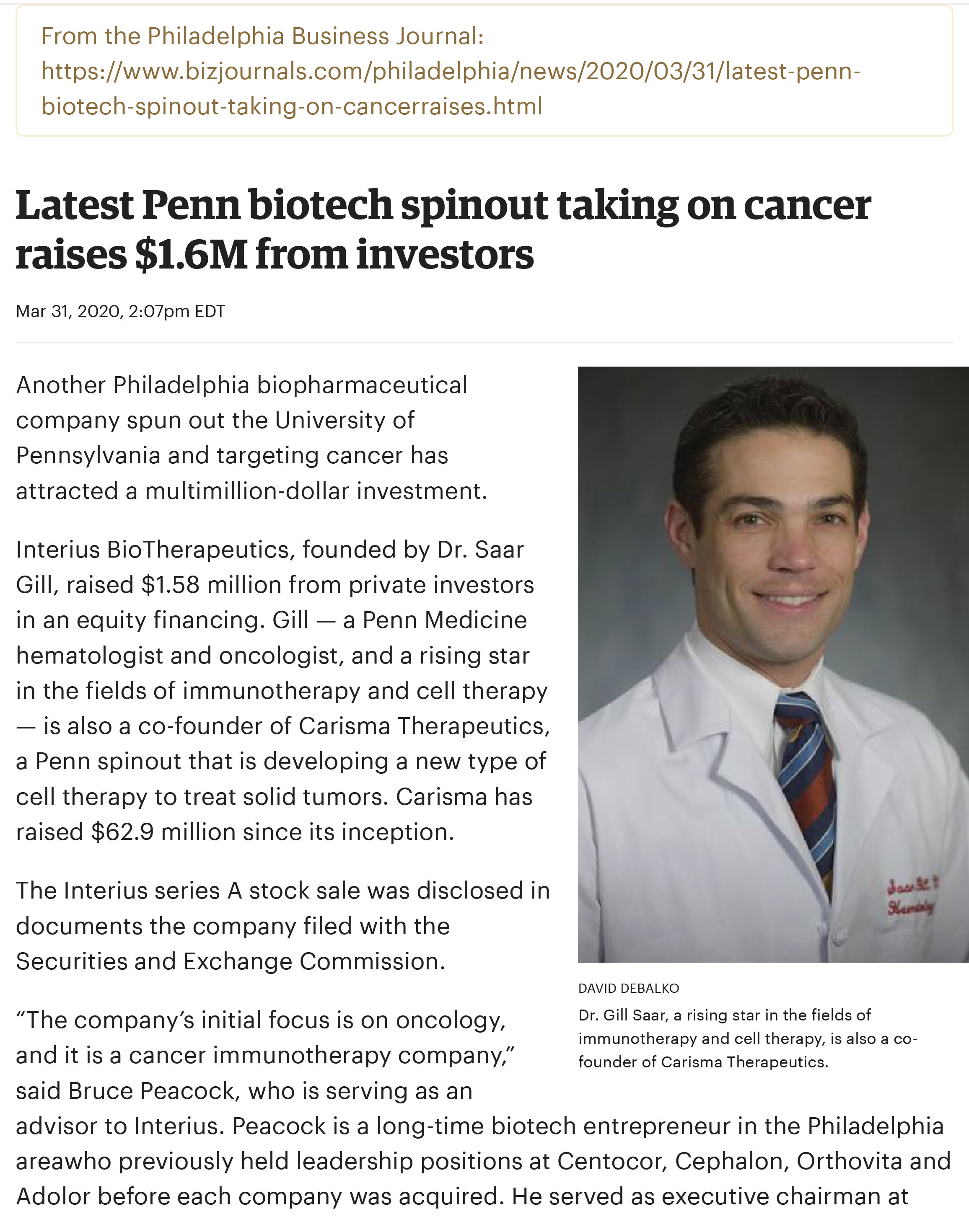
Screenshot: Latest Penn biotech spinout taking on cancer raises $1.6M from investors (Philadelphia Business Journal)
Interius Biotherapeutics seeks to eliminate the ex vivo manufacturing step required for many cell and gene therapies through direct viral delivery of genes to immune and blood cells inside patients themselves. Potential applications include treatments for a variety of blood disorders, as well as the delivery of chimeric antigen receptors to cytotoxic T-cells to attack various forms of cancer or into regulatory T-cells to address certain types of autoimmune disease. If successful, this new platform technology and approach may lead to significantly more affordable and more accessible cell and gene therapies.
Interius was spun-out of Penn by Saar Gill, M.D., Ph.D., Scientific co-director, Transplant & Cell Therapy program at The University of Pennsylvania, and a prominent inventor in the CAR-T field and Bruce Peacock, an experienced biotechnology executive and successful entrepreneur.
Procter & Gamble entered into a research collaboration with Dr. Hyun (Michel) Koo, Professor in the Department of Orthodontics, Division of Community Oral Health, Division of Pediatric Dentistry in the School of Penn Dental Medicine, to fund a multi-year development project focusing on a unique dental technology platform based on automated disruption and removal of cavity causing oral biofilms in dental patients. The initial goal of the multi-year project is to use a combination of robotics, chemistry and magnetic actuation to develop a device prototype that can be used in additional translational studies.
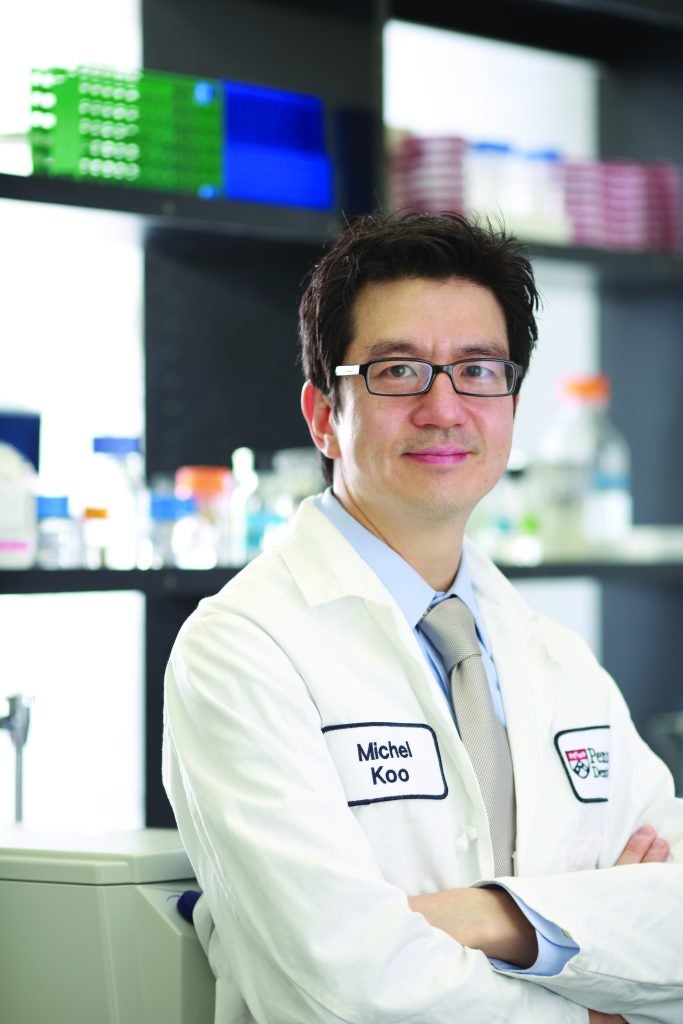
Dr. Hyun (Michel) Koo, Professor in the Department of Orthodontics, Division of Community Oral Health, Division of Pediatric Dentistry, Penn Dental Medicine
Robert Riggleman, Ph.D. and Karen Winey, Ph.D., both faculty members in the Penn School of Engineering, have been engaged in partnership activities with ExxonMobil since 2017 around a multi-year study of longtime deformation in polymer nanocomposites. By utilizing a combination of theory, simulation, and experimental techniques, this project aims to uncover the structure-property relationship in model nanocomposite systems and to develop an understanding of how nanoparticles affect the longtime deformation response in a polymer matrix. The hope is that this translative research will lead to potential product applications such as enabling the use of polymer nanocomposites as part of improved structural materials.

Karen Winey, Ph.D.

Robert Riggleman, Ph.D.
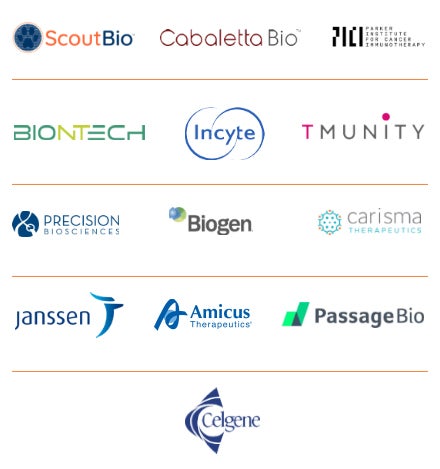
PCI has facilitated nearly twenty major multi-year alliances with corporate partners and startup companies that have helped to further accelerate the commercialization of Penn ideas into products that provide therapies and cures for patients, as well as supporting a broad range of sustained R&D activities at Penn. For example, Penn’s multiple large-scale alliances in the area of cell and gene therapy have dramatically accelerated the growth of what is increasingly globally referenced as ‘Cellicon Valley’ centered around Penn and based in Greater Philadelphia. Two of Penn’s alliance partners had successful IPOs this past year: Cabaletta Bio and Passage Bio and corporate alliances continue to be a vital driver of PCI and Penn’s commercialization and product development activities.
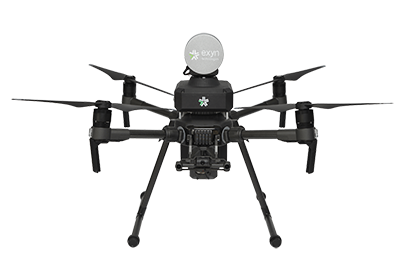
An Exyn Technologies quad-rotor robotic aircraft

Exyn Technologies, an autonomous unmanned robotics company based in Philadelphia and co-founded as part of the PCI UPstart program with Dr. Vijay Kumar, Dean of the Penn School of Engineering, won numerous accolades over the course of the past fiscal year including the RBR 50 Robotics Innovation Awards, SXSW Innovation Awards, Mining Magazine Awards, and the Frost & Sullivan Technology Innovation Award. The company also signed a major global partnership with Sandvik, a world-leader in automated machinery for the mining market, further validating the unique strengths and market capabilities of Exyn’s proprietary robotics technology. Equally importantly, Exyn delivered dozens of robot systems to their commercial and government customers and has begun to generate significant annual revenue.

SchoolSims provides a virtual electronic classroom environment through software simulations where current and aspiring school leaders can safely improve their critical thinking and judgment skills. In addition to changing their branding and overall marketing strategy, the company also added significant executive leadership in Brian Biddulph-Krentar as Chief Strategy Officer and Mary Pat Fralick as Chief Operating Officer. Their combined efforts resulted in an incredible 172% sales growth over the course of the fiscal year, and a new proprietary software platform capable of delivering the simulations to school systems across the country thereby allowing for significant additional market growth. Future plans involve expanding the simulation library to include teacher training as well as additional administration simulations. The company was co-founded by Dr. Michael Johanek, Professor in the Graduate School of Education, through the PCI Ventures UPStart program.

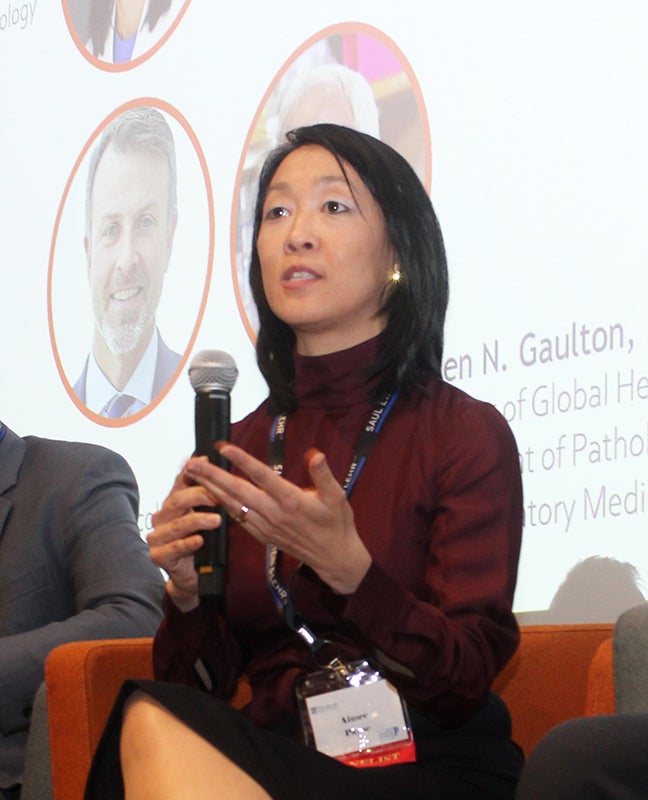

Passage Bio and Cabaletta Bio, two innovative startups spun out of Penn, completed successful IPOs this past year and further expanded their respective partnerships with the University. Passage Bio’s IPO was the largest to date for a Philadelphia-based cell and gene therapy company bringing in an extraordinary $248.4 million, while Cabaletta raised $74.8 million for its own corporate expansion and product development efforts.


Linnaeus Therapeutics, a clinical-stage biopharmaceutical company developing novel small-molecule oncology therapeutics, announced in June that the FDA had granted it Fast Track designation for its lead drug candidate LNS8801 for the treatment of patients with advanced melanoma. The phase 1/2 clinical trials began in November 2019, and Phase I is anticipated to be completed shortly. Further, the company announced a clinical trial collaboration and supply agreement with Merck to test LNS8801 in combination with Merck’s blockbuster oncology drug, pembrolizumab, which is more commonly known as Keytruda®.
The company’s scientific co-founders, Todd Ridky, M.D, Ph.D., Assistant Professor of Dermatology at the Perelman School of Medicine and Christopher Natale, Ph.D., Vice President of Research at Linnaeus, and, presented their findings on LNS8801 in the journal Cellular and Molecular Gastroenterology and Hepatology, in an article entitled "Pharmacologic Activation of G Protein-Coupled Estrogen Receptor Inhibits Pancreatic Ductal Adenocarcinoma." Linneaus was co-founded and launched through PCI Ventures’ UPstart incubator.
inventXYZ is a new company initiative dedicated to bringing high-tech, hands-on education to students everywhere by setting up makerspaces (collaborative workspaces) at partner schools across the country. Nikil Ragav, inventXYZ’s co-founder, is a recent graduate from the Penn School of Engineering and Applied Sciences, and his team participated in the Fall 2019 Penn I-Corps program before applying for the President’s Innovation Prize. After winning the prize Nikil spent the summer offering virtual summar workshops for high school and middle school students who were stuck at home due to camp and summer program cancellations.
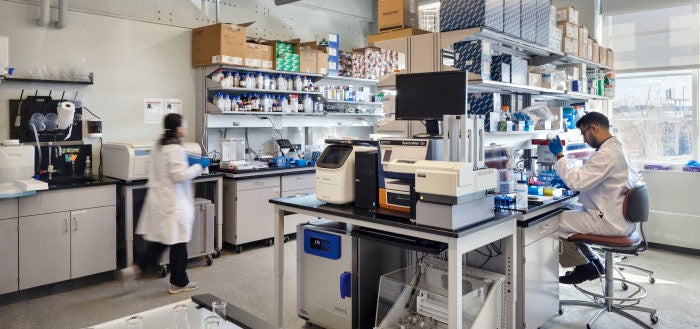
Private sector partnering and commercialization of technologies enabled by innovators across the University are making vital contributions to a growing number of COVID-19 diagnostics, therapeutics, vaccines, clinical interventions and technical solutions. Breakthroughs made by Penn faculty members are core components of numerous high-profile product candidates, including multiple leading vaccine candidates for COVID-19. In rapid response to the global crisis, Penn faculty, clinicians and R&D teams rapidly adapted their research priorities to focus on new technologies and solutions to help mitigate the impacts of the current pandemic.
COVID-19 is associated with high rates of respiratory failure, cardiac injury, and death in some severely affected patients who present with reduced expression of angiotensin converting enzyme 2 (ACE2) and depletion of ACE2’s protein product, the anti-inflammatory peptide Angiotensin-(1-7). Henry Daniell, Ph.D., Vice Chair and W.D. Miller Professor in the Penn School of Dental Medicine, and his colleagues, developed a platform for producing recombinant ACE2 and Angiotensin-(1-7) in lettuce plants that is shelf-stable at room temperature over extended storage and transportation timelines. Preclinical studies in animal models of pulmonary hypertension showed that orally delivered ACE2 made in plant cells accumulated ten times higher in animal lungs than in the blood, and treated pulmonary hypertension at escalating doses without any observed toxic effects. Dr. Daniell was recently awarded more than $800,000 in funding from Pennsylvania’s COVID-19 Vaccines, Treatments and Therapies (CV-VTT) program to support further clinical development of these plant produced therapeutic and vaccine technologies. Discussions with commercial manufacturers are underway to ensure a robust supply chain in place for the upcoming clinical studies.

Henry Daniell, Ph.D., Vice Chair and W.D. Miller Professor in the Penn School of Dental Medicine
Currently available COVID-19 diagnostics often require long turnaround times between patient sampling and test results, and too many suffer from a high frequency of false negative outputs. Many tests also require patients to travel to collection sites, where the risk of transmission may be increased. More timely, accurate, and accessible testing is critically needed to effectively monitor groups, contract trace suspected outbreaks and quarantine infected individuals to help limit disease transmission. Ping Wang, Ph.D., Associate Professor and Director of the Clinical Chemistry Section and Core Laboratory at the Perelman School of Medicine, has developed an exciting new portable diagnostic test that accepts both nasopharyngeal and saliva samples to provide rapid and sensitive detection of SARS-CoV-2, the causative virus behind COVID-19 infections. The test has a 15-minute turnaround time and with high sensitivity (~95%) and specificity (~99%), thus making it faster, and more resistant to false negatives as compared with most other current diagnostic tests. The novel testing platform developed by Dr. Wang and her laboratory is not limited to the detection of SARS-CoV-2 but can also be easily adapted to aid in the identification and diagnosis of other infectious diseases.
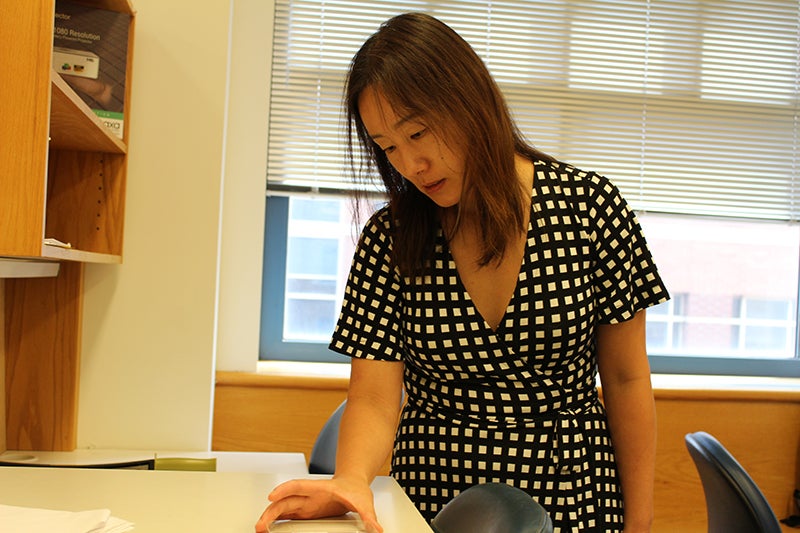
Ping Wang, Ph.D.
Penn and PCI’s vital contributions to commercialization activities at the University and in and around Greater Philadelphia continue to be widely recognized.
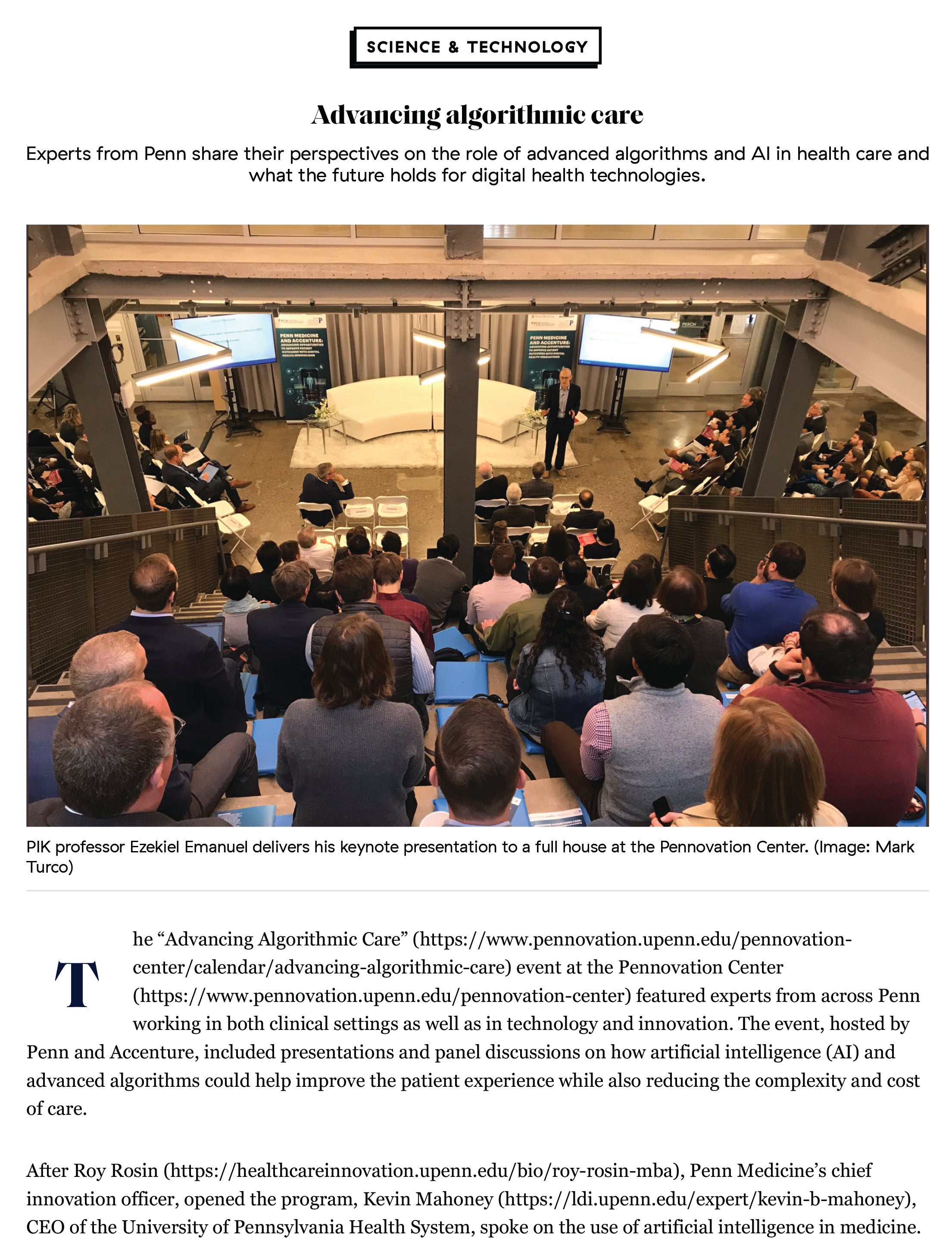

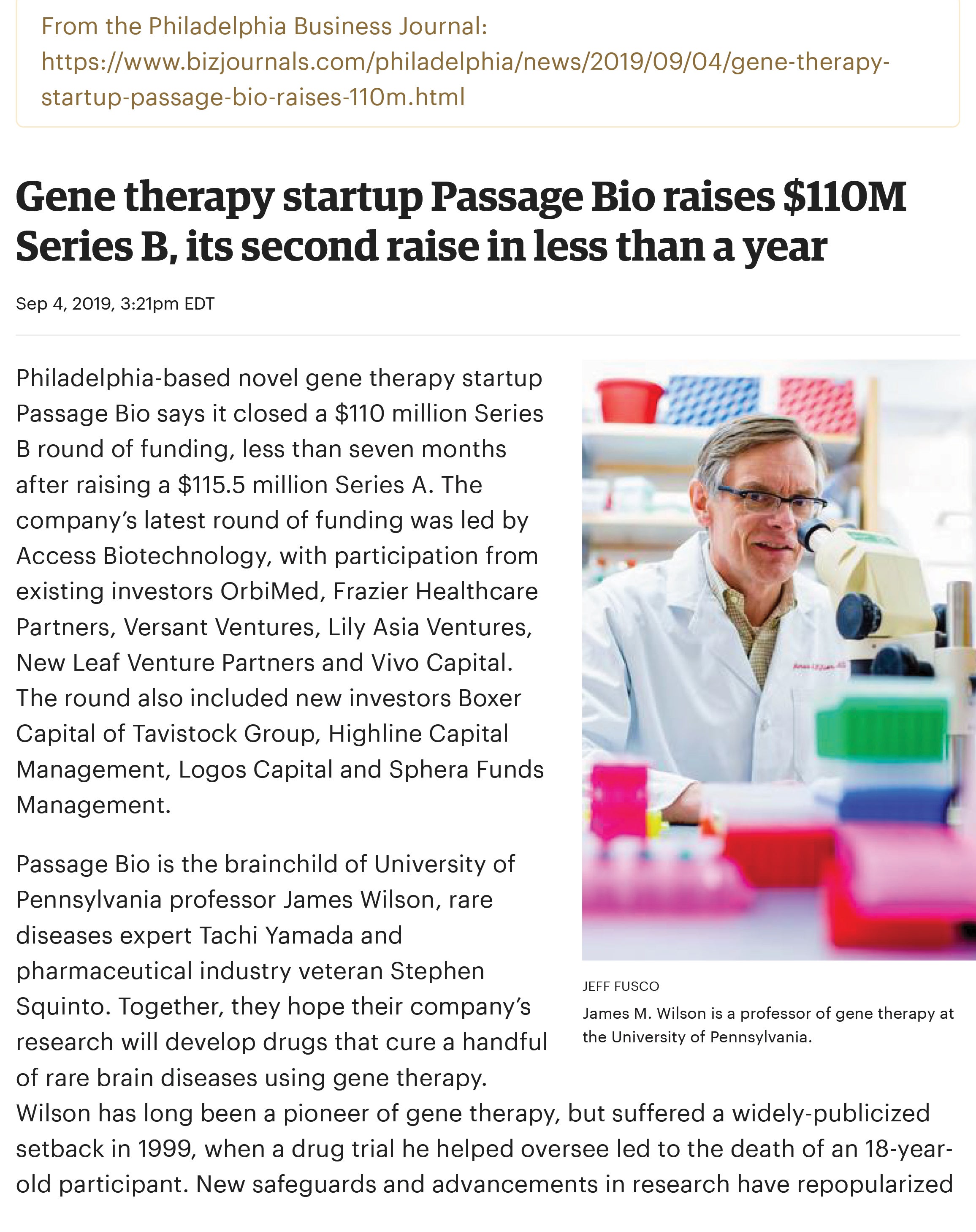
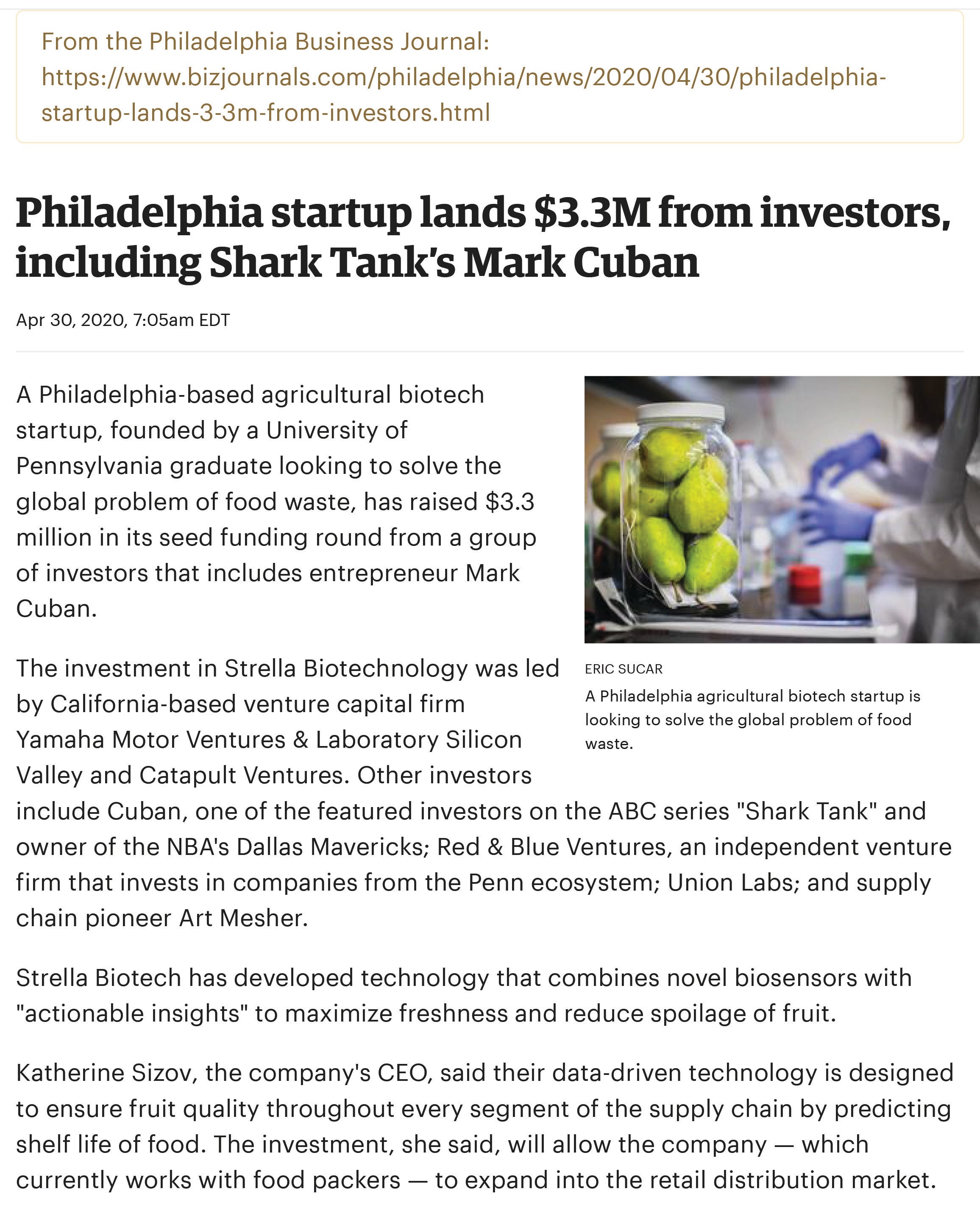

PCI hosted its annual Celebration of Innovation last December to recognize patent awardees and significant commercialization achievements made by Penn faculty and innovators over the course of the last fiscal year. The evening featured remarks from special keynote speaker, Andrei Iancu, Under Secretary of Commerce for Intellectual Property and U.S. Patent and Trademark Office Director, and successfully highlighted selected University innovators and startups, including a number of special awards that were presented to recipients across the following categories:
In January more than 200 investors, corporate partners, alumni, and supporters came together at a PCI-organized showcase held at Wharton San Francisco during the annual JPMorgan Healthcare Conference to hear from innovative faculty from Penn Medicine and how they are leading the way towards developing novel treatments for challenging diseases. J. Larry Jameson, M.D., Ph.D., Dean of the Perelman School of Medicine, was the stellar program’s featured keynote speaker. Dean Jameson’s remarks were followed by a panel discussion with four Perelman School of Medicine faculty leaders in the innovation and commercialization space at Penn Medicine, including:

From Left to Right: Dr. David Brailer, Dr. Christoph Thaiss, Dr. Aimee Payne, Dr. E. John Wherry, Dr. J. Larry Jameson, Dr. Jim Wilson, and Dr. Glen Gaulton
Penn’s in-person participation in the annual SXSW festival in March was unfortunately cancelled due to the impact of the COVID-19 crisis, however PCI was able to pivot to a virtual pitch session held subsequently in partnership with the Wharton Alumni Club of Austin. On Friday, June 5, 2020, seven startups made brief pitches to more than 60 partners and guests at the first Innovation @ Penn virtual pitch session.
The featured companies in order of their pitch:
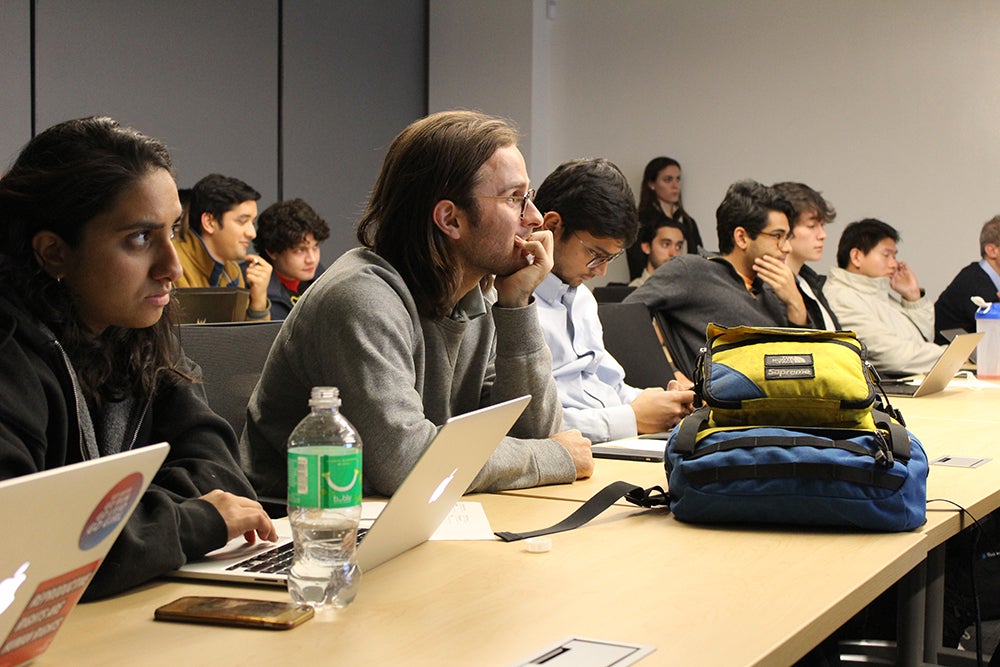
I-Corps participants listening to a presentation during their training.
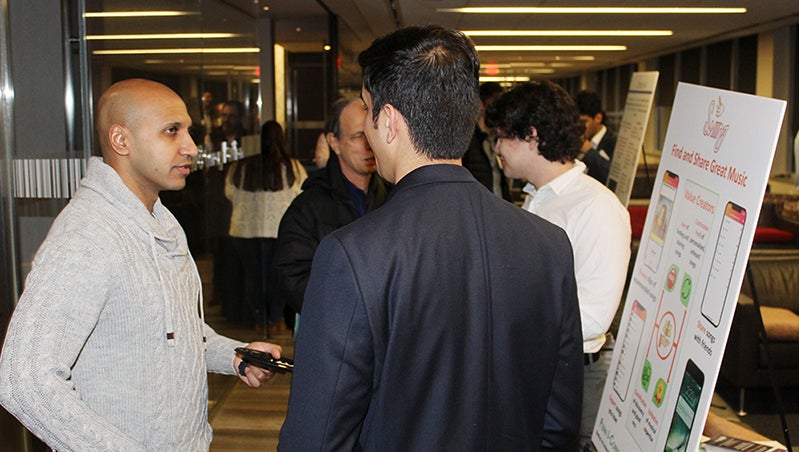
I-Corps graduates presented their business idea during the 2019 Celebration of Innovation.
Since its inception in 2015, 136 teams and 297 individual team members have been trained by the Penn I-Corps program, an early stage accelerator funded by the National Science Foundation (NSF) and managed by PCI. Teams participating in Penn I-Corps often go on to participate in other complementary innovation-support programs such as the YCombinator, DreamIt, Wharton Venture Initiation, and the HAX hardware accelerator.
To date, 6 I-Corps company graduates are currently generating positive revenue and 33 have received a cumulative $25 million in external funding support from a variety of different sources including professional VC investors. Overall, 47 jobs have been created in the Philadelphia area by program graduates, and the President’s Innovation Prize was awarded for the past three years to teams who participated in the Penn I-Corps program. In addition, seven teams have gone on to participate in the National I-Corps program and eight teams have subsequently been awarded SBIR/STTR grants.
The newly constructed Pennovation Lab Building, anticipated for completion in November 2020, is a state-of-the-art 65,000 +/-rentable ft2 multi-tenant laboratory and office building located within the 23-acre Pennovation Works campus. Once officially open, it will cater to emerging companies that have secured early-stage funding and have outgrown their current incubator space - especially companies with 10 to 25 employees or those needing from 2,000 to 10,000 square feet of wet and dry lab and/or office space. The Pennovation Lab’s proximity to the Pennovation Center and other research facilities contributes to the overall spirit of community and collaboration developing on the Pennovation Works campus, and will provide additional resources for researchers and entrepreneurs to convert their discoveries into viable business ventures.

The Pennovation Accelerator, a program originally launched in 2018 to provide in-depth assistance to a selected cohort of early stage startup companies from across the region, converted to a completely virtual format this past year. This year’s 6-week curriculum focused on the composition of a strong pitch, from business model to storytelling, and culminated in a Virtual Pitch Day.
The 2020 cohort of ten companies were chosen from more than 70 applicants and represented a varied cross-section of industries - from software to medical devices and consumer products. Among the selected companies were two Penn I-corps graduates, Pawsitive and Percepta (previously Osiris AI).
“The Accelerator was crucial to helping us formulate an entirely new business model and recognize new challenges, and now we’re tweaking the app to make it even more sustainable,” said Samaya Sinha, Co-founder of Pawsitive.

FloBio is a Penn-affiliated startup company developing point-of-care diagnostic tests to rapidly assess the bleeding risk and blood clotting status of patients in emergency and critical care settings. The company was co-founded by Scott L. Diamond, Ph.D. director of the Penn Center for Molecular Discovery, and is led by its CEO, Jerri Ann Thatcher. This year, the company was awarded a $240,000 Phase 1 NIH SBIR grant from the National Heart, Lung, and Blood Institute, received a separate $50,000 grant from the Philadelphia Pediatric Medical Device Consortium, and raised $150,000 in seed funding. FloBio’s first product in development is designed to address the demand for a Direct Oral Anticoagulant (DOAC) test to detect the presence, type, and level of anticoagulation in patients. The company’s approach has the potential to improve decision-making for managing at-risk patients while reducing unnecessary hospital and medication costs.
Penn Vet Working Dog Center COVID-19 research
A pilot training program utilizing scent detection dogs to discriminate between samples from COVID-19 positive and COVID-19 negative patients is the focus of an exciting new research initiative at the University of Pennsylvania’s School of Veterinary Medicine (Penn Vet). This pioneering study that explores the sensitivity and specificity of scent will set the stage for dogs to be a force multiplier in the mission to detect COVID-19, particularly among asymptomatic patients, or hospital or business environments where testing is often logistically challenging.
Allevi & Wistar partnership for COVID-19 research
Allevi Inc. and Wistar plan to evaluate how Allevi's 3D biofabrication technologies could be useful in the battle against SARS-CoV-2. Under the partnership, Allevi will apply its patented 3D bioprinting platform to create three-dimensional lung models, which Wistar scientists will use to further study the coronavirus.
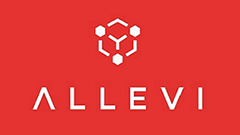
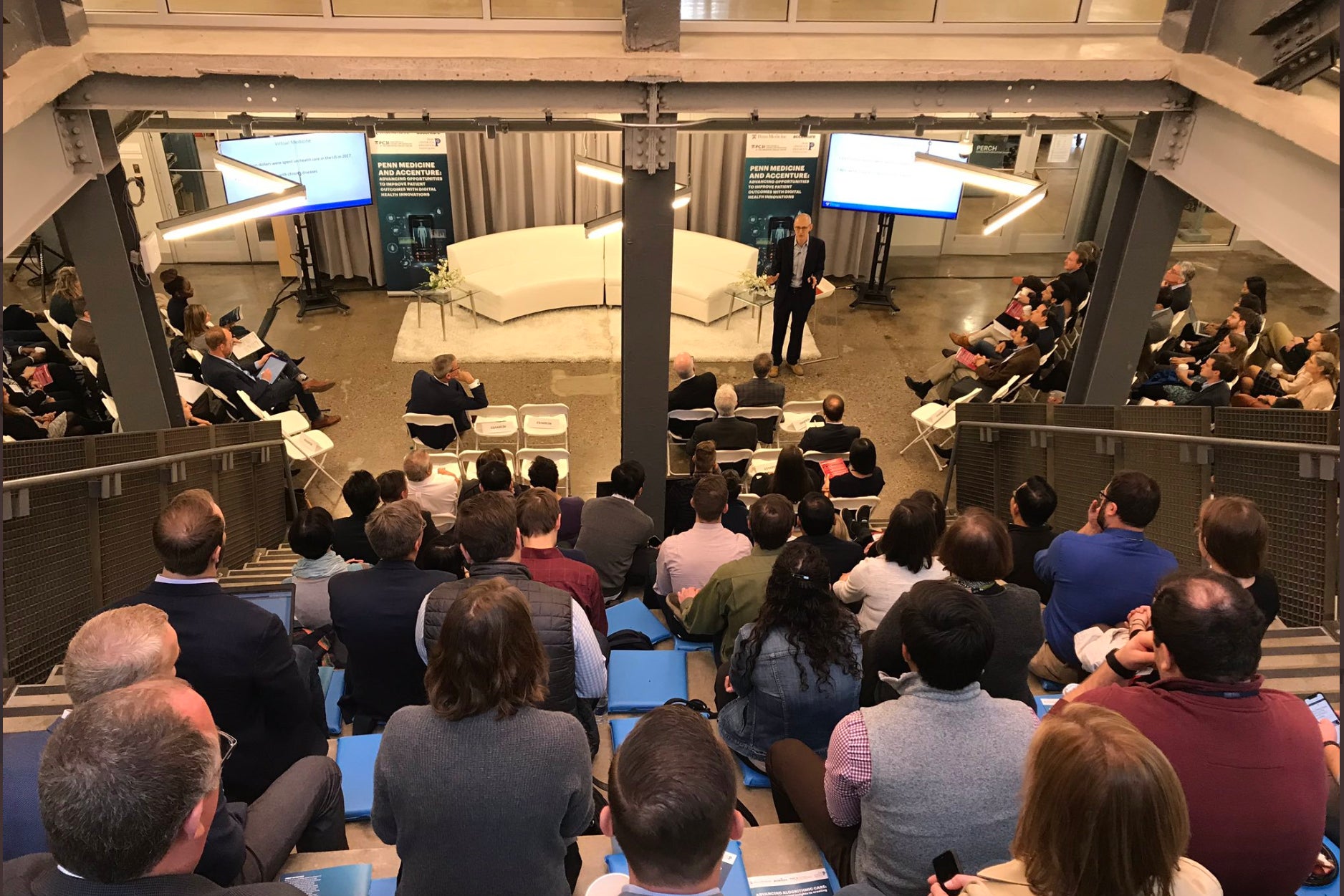
PIK professor Ezekiel Emanuel delivers his keynote presentation to a full house at the Pennovation Center. (Image: Mark Turco)
PCI facilitated a partnership with Accenture to help support Penn Medicine’s “Penny” chatbot platform, an AI-driven program that uses text-messaging to provide direct patient reminders. Accenture has contributed funds to allow for back-end development of Penn’s patient support systems to further support the platform. Penn participants include faculty and personnel from the Perelman School of Medicine, the Abramson Cancer Center and the Center for Healthcare Innovations.
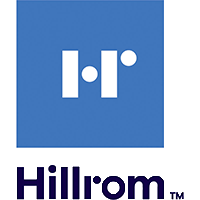
PCI facilitated a partnership between medical and hospital products leader Hillrom, the School of Engineering and Applied Science’s PRECISE Center and the School of Nursing to develop multi-faceted technical solutions for health care challenges across different domains, including critical care, diabetes, mental health, and cardiology. This collaboration seeks to help to accelerate the adoption of new technologies by clinicians via unobtrusive, frictionless sensors that respect the natural workflow practices of caregivers.

PCI launched the Innovator’s Help Desk to support Penn faculty, researchers, and partners with their commercialization needs and efficient address questions. The Help Desk is a dedicated online resource available 24/7 that features a variety of helpful tools and services for innovators at Penn including answers to frequently asked questions and a linked help line monitored by PCI staff during normal working hours. The Help Desk has been a vital resource during the current public health crisis when many individuals and groups have transitioned to remote work and interaction formats. Please visit the Help Desk at Help Desk website or call 215-7IN-VENT.